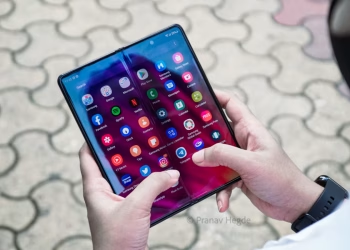The World of Street Woman Fighter victory celebration turned bitter when winning team OSAKA OJO Gang’s leader Ibuki was notably absent from the Seoul concert tour. What should have been a triumphant moment became a public controversy involving contract disputes, financial allegations, and team betrayal accusations.
Table of Contents
Ibuki Shocking Absence That Started Everything
Ibuki from Osaka Ojo Gang did not participate in the Busan concert at Sajik Indoor Gymnasium due to stated “health reasons,” while the remaining members performed as scheduled. However, behind this official statement lies a complex web of financial disputes and contractual disagreements that have divided the championship-winning dance crew.

The absence became particularly painful during the Seoul concert when teammate Kyoka was seen crying on stage, highlighting the emotional toll of the internal conflict on the entire group.
The Controversy Timeline
| Date | Event | Impact |
|---|---|---|
| September 8 | Ibuki’s Instagram statement | Public revelation of dispute |
| September 9 | Route59 organizers respond | Contract demands exposed |
| September 10 | Members’ counter-allegations | Financial misconduct claims |
| September 11 | Manager’s denial statement | Defense against embezzlement |
The Financial Allegations That Shook the Dance World
OSAKA Ojo Gang members claimed leader Ibuki pocketed appearance fees and mission expenses, citing “unpaid appearance fees, unclear financial handling, and the absence of proper explanations”. The accusations paint a troubling picture of financial mismanagement within the winning team.
The members’ joint statement revealed their frustration: “Even after a long time passed, no payments were made, no clear amounts were presented, and our repeated questions went unanswered”.
Ibuki’s Side: “No Voice as an Artist”
Ibuki addressed fans through her personal social media, revealing her perspective on the conflict with organizers over concert participation, eventually hiring a lawyer after being excluded from shows without consent. Her September 8 Instagram post expressed genuine regret about missing the Seoul concert she “really wanted to participate in.”
From Ibuki’s perspective, the dispute centers on:
- Artistic freedom and creative control over performances
- Fair treatment in contract negotiations
- Proper consultation before major decisions
- Professional respect as a team leader
The Organizers Strike Back: “Unfair Demands”
Route59, the production company behind the WSWF concert, released a statement revealing alleged unfair contract demands from Ibuki that “couldn’t be accepted”. The organizers painted a different picture, suggesting Ibuki’s demands were unreasonable and potentially damaging to the overall tour.
Concert organizers released a statement outlining the controversial conditions demanded by her, though specific details remain partially undisclosed to protect ongoing legal discussions.

What the Industry Is Saying
The dance community has been split on the controversy, with some supporting Ibuki’s right to fair treatment while others criticize the public nature of the dispute. The situation highlights broader issues within the Korean entertainment industry regarding:
- Power dynamics between artists and management
- Financial transparency in group earnings
- Contract negotiations for reality show winners
- Professional relationships under commercial pressure
The Manager’s Defense Strategy
Ibuki’s manager has denied embezzlement allegations and claimed the fight was actually to protect OSAKA Ojo Gang members. This counter-narrative suggests the dispute arose from protective intentions rather than selfish motives.
The management team’s defense focuses on:
- Protecting member interests from unfavorable contracts
- Ensuring fair compensation for all team members
- Maintaining artistic integrity in commercial deals
- Fighting exploitative industry practices
For more updates on K-pop and dance entertainment controversies, stay tuned to our comprehensive coverage.
The Emotional Toll on Remaining Members
The most heartbreaking aspect of this controversy is its impact on the remaining OSAKA OJO Gang members. Kyoka’s tears during the Seoul concert became a viral moment that symbolized the pain of a fractured team dynamic.
The remaining members found themselves caught between loyalty to their leader and the practical need to fulfill contractual obligations, creating an impossible emotional situation.
What This Means for Future Reality Show Winners
This controversy sets a concerning precedent for future Street Woman Fighter and similar reality show winners. It highlights the need for:
- Clear financial agreements before show participation
- Transparent payment structures for group activities
- Professional mediation for internal disputes
- Better legal protection for contestants
The Bigger Picture: Industry Reform Needed
The controversy has intensified discussions about whether entertainment companies are creating villains out of legitimate grievances, with fans and fellow dancers weighing in on social media platforms.
This situation exposes systemic issues in how reality show success translates to sustainable careers and fair treatment for all participants.
Frequently Asked Questions
Q: What were the main reasons Ibuki missed the World of Street Woman Fighter tour concerts?
A: Ibuki missed the concerts due to a complex dispute involving contract disagreements with tour organizers Route59, financial allegations from her OSAKA OJO Gang teammates, and what she described as being excluded from shows without proper consultation. While organizers cited “health reasons,” the real issue was contractual disputes over allegedly unfair demands and lack of artistic control.
Q: What specific financial allegations did OSAKA OJO Gang members make against Ibuki?
A: The team members accused Ibuki and her manager of pocketing appearance fees and mission expenses from their Street Woman Fighter victory, claiming there were unpaid appearance fees, unclear financial handling, and no proper explanations provided. They stated that despite repeated questions, no payments were made and no clear amounts were presented, leading to the current legal and public dispute.








